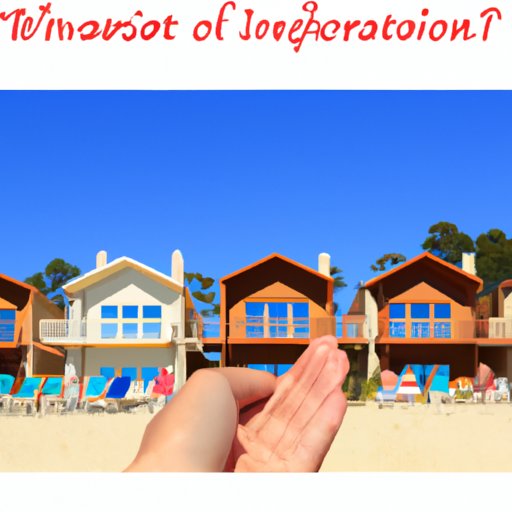Introduction
Vacation ownership is an increasingly popular option for those looking for a second home or a holiday home but don’t want to commit to the full cost of ownership. It offers many of the same benefits as owning a property outright, such as the ability to use it whenever you like, but with a much lower financial commitment. In this article, we’ll explore what vacation ownership is, the pros and cons of owning a vacation home, what you should know before investing in a vacation home, how to choose the right vacation home for you, the types of vacation ownerships available, an overview of vacation ownership costs and a guide to finding the best vacation home deals.
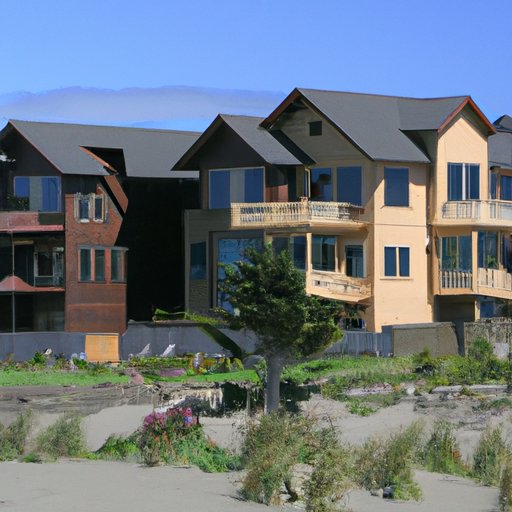
The Pros and Cons of Owning a Vacation Home
As with any investment, there are both advantages and disadvantages to owning a vacation home. Here’s a look at some of the key pros and cons.
Advantages of Owning a Vacation Home
A major benefit of owning a vacation home is the freedom it offers. You have the flexibility to use it whenever you like and for however long you like. For example, if you’re looking for a weekend getaway, you can use your vacation home for just a few days. And if you’re planning a longer stay, you can use your vacation home for weeks or months at a time. Another advantage is that you can rent out your vacation home when you’re not using it, which can help offset some of the costs associated with owning it.
Disadvantages of Owning a Vacation Home
One of the main drawbacks of owning a vacation home is the upfront cost. Depending on the type of property and location, the cost of purchasing a vacation home can be quite high. Additionally, there are ongoing costs associated with owning a vacation home, such as maintenance and taxes. Finally, since you don’t use it all the time, you may not get as much enjoyment out of it as you would from a primary residence.
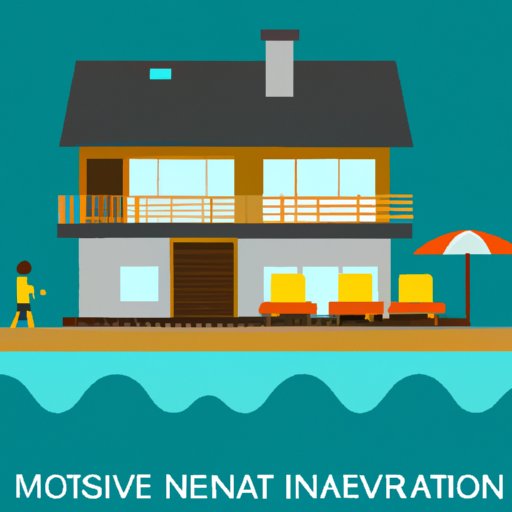
What You Should Know Before Investing in a Vacation Home
Before investing in a vacation home, there are several things you should consider. Here are some key points to keep in mind.
Researching Your Options
The first step is to research your options. Look into different types of vacation homes, locations and amenities. Compare prices and features to find the best deal for you. Consider factors such as the size of the property, views, access to activities and attractions, and proximity to airports or other transportation hubs.
Understanding Financing and Taxes
It’s important to understand the financing and tax implications of owning a vacation home. Talk to a financial advisor to determine what kind of loan you qualify for and what kind of taxes you’ll need to pay. Also, consider how much you can afford to spend and whether you’ll need to take out a mortgage or use other financing options.
Determining Maintenance Costs
Maintenance costs can add up quickly, so it’s important to factor them into your budget. Consider how often the property will need to be cleaned and maintained, and what kind of repairs may be necessary. Make sure you understand the potential costs of maintaining the property before making a purchase.
How to Choose the Right Vacation Home for You
Once you’ve done your research and determined your budget, it’s time to start looking for the perfect vacation home. Here are some tips to help you find the right one for you.
Deciding on Location
Location is one of the most important factors to consider when choosing a vacation home. Think about what kind of environment you prefer—do you want a beachfront property or a mountain retreat? Are you looking for something near a big city or more rural areas? Consider what kind of activities you want to do while you’re there, and think about the climate and weather conditions.
Assessing Amenities
When choosing a vacation home, it’s also important to consider the amenities. Do you need access to a pool, hot tub, gym or other recreational facilities? Do you want a fully-equipped kitchen or just basic appliances? Think about what kind of features you’d like to have in your vacation home.
Choosing the Right Size
Size is another important factor to consider when choosing a vacation home. Think about how many people you’ll be hosting and how much space you’ll need. If you plan to rent out the property, make sure it’s large enough to accommodate your guests comfortably.
What Types of Vacation Ownerships Are Available?
There are several different types of vacation ownership available, each with its own advantages and disadvantages. Here’s a brief overview of the most common types.
Timeshares
A timeshare is a type of vacation ownership where multiple people share the same property. Each person has the right to use the property for a specific period of time, typically for one week per year. Timeshares are generally less expensive than other types of vacation ownership, but they also come with certain restrictions, such as limited access to certain amenities or activities.
Fractional Ownership
Fractional ownership is similar to timeshares, but instead of sharing the property with multiple people, you own a fraction of the property. You’ll have exclusive rights to use the property during your designated time period, but you’ll also need to share the costs of upkeep and maintenance with other owners. Fractional ownership is more expensive than timeshares, but it also offers more flexibility and freedom.
Whole Ownership
Whole ownership is the most traditional form of vacation ownership. With whole ownership, you own the entire property and have exclusive rights to it. This type of ownership offers the greatest flexibility, but it also comes with the highest costs. You’ll need to pay for all the costs associated with owning a property, such as taxes, insurance, maintenance and repairs.
An Overview of Vacation Ownership Costs
When considering vacation ownership, it’s important to understand the costs associated with it. Here’s a look at the various costs you can expect.
Upfront Costs
The upfront cost of vacation ownership depends on the type of ownership you choose. Timeshares tend to be the least expensive, followed by fractional ownership and then whole ownership. Additionally, you may need to pay closing costs such as transfer fees, legal fees and taxes. It’s important to factor these costs into your budget when deciding whether or not to invest in a vacation home.
Ongoing Costs
In addition to the upfront costs, you’ll also need to consider the ongoing costs associated with vacation ownership. These include maintenance fees, taxes, insurance, utilities and any other costs related to upkeep. It’s important to factor these costs into your budget when deciding how much you can afford to spend on a vacation home.
A Guide to Finding the Best Vacation Home Deals
Finding the best deals on vacation homes can be tricky, but there are a few things you can do to get the best price. Here are a few tips to help you find the best deals.
Shopping Around
The first step is to shop around. Look at different types of vacation homes in different locations to compare prices and features. Don’t be afraid to negotiate with sellers to get the best possible deal. Be sure to read reviews and ask questions to get a better understanding of the property and what you’re getting for your money.
Negotiating Price
Negotiating price is key to getting the best deal. Don’t be afraid to make an offer below the asking price. Sellers may be willing to negotiate, especially if they’re motivated to sell. Offer to pay cash or arrange financing yourself to further sweeten the deal.
Taking Advantage of Special Offers
Keep an eye out for special offers and discounts. Many vacation home companies offer deals and discounts throughout the year, so it pays to be on the lookout for these. Additionally, you may be able to find discounts through travel websites or loyalty programs. Taking advantage of these offers can help you save money on your vacation home purchase.
Conclusion
Vacation ownership can be a great way to enjoy a holiday home without the full cost of ownership. There are several types of vacation ownership available, each with its own advantages and disadvantages. It’s important to understand the costs associated with vacation ownership, as well as how to find the best deals. With the right research and preparation, you can enjoy the benefits of owning a vacation home without breaking the bank.
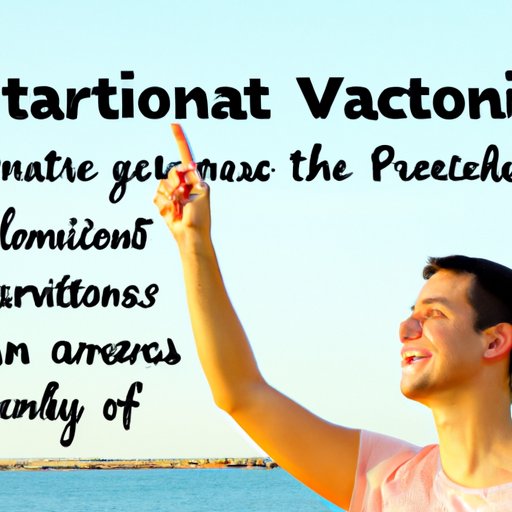
Summary of Vacation Ownership Benefits
Vacation ownership offers many benefits, including:
- Flexibility to use the property whenever you like
- Ability to rent out the property when not in use
- Several types of ownership to choose from
- Opportunity to save money through deals and discounts
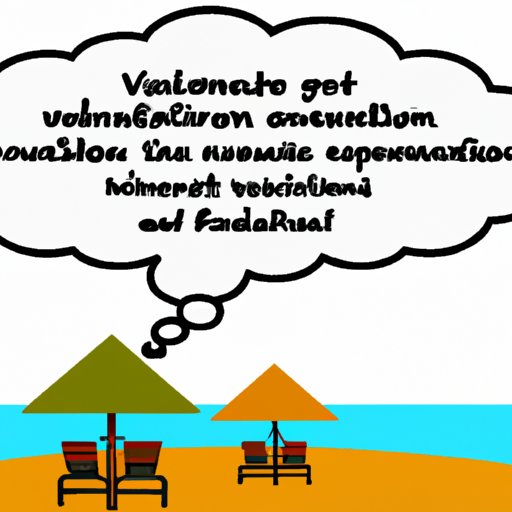
Final Thoughts on Vacation Ownership
Vacation ownership can be a great way to enjoy a holiday home without the full cost of ownership. With the right research and preparation, you can find the perfect vacation home to suit your needs and budget. Take your time to explore all your options and you’ll be sure to find the perfect vacation home for you.
(Note: Is this article not meeting your expectations? Do you have knowledge or insights to share? Unlock new opportunities and expand your reach by joining our authors team. Click Registration to join us and share your expertise with our readers.)
